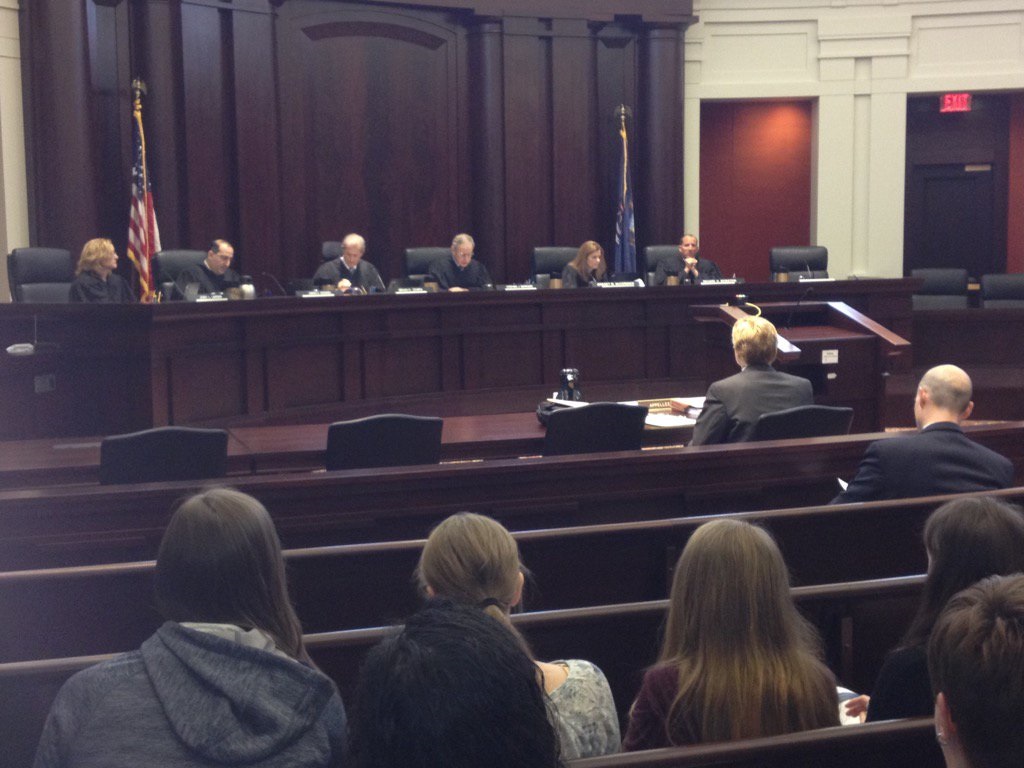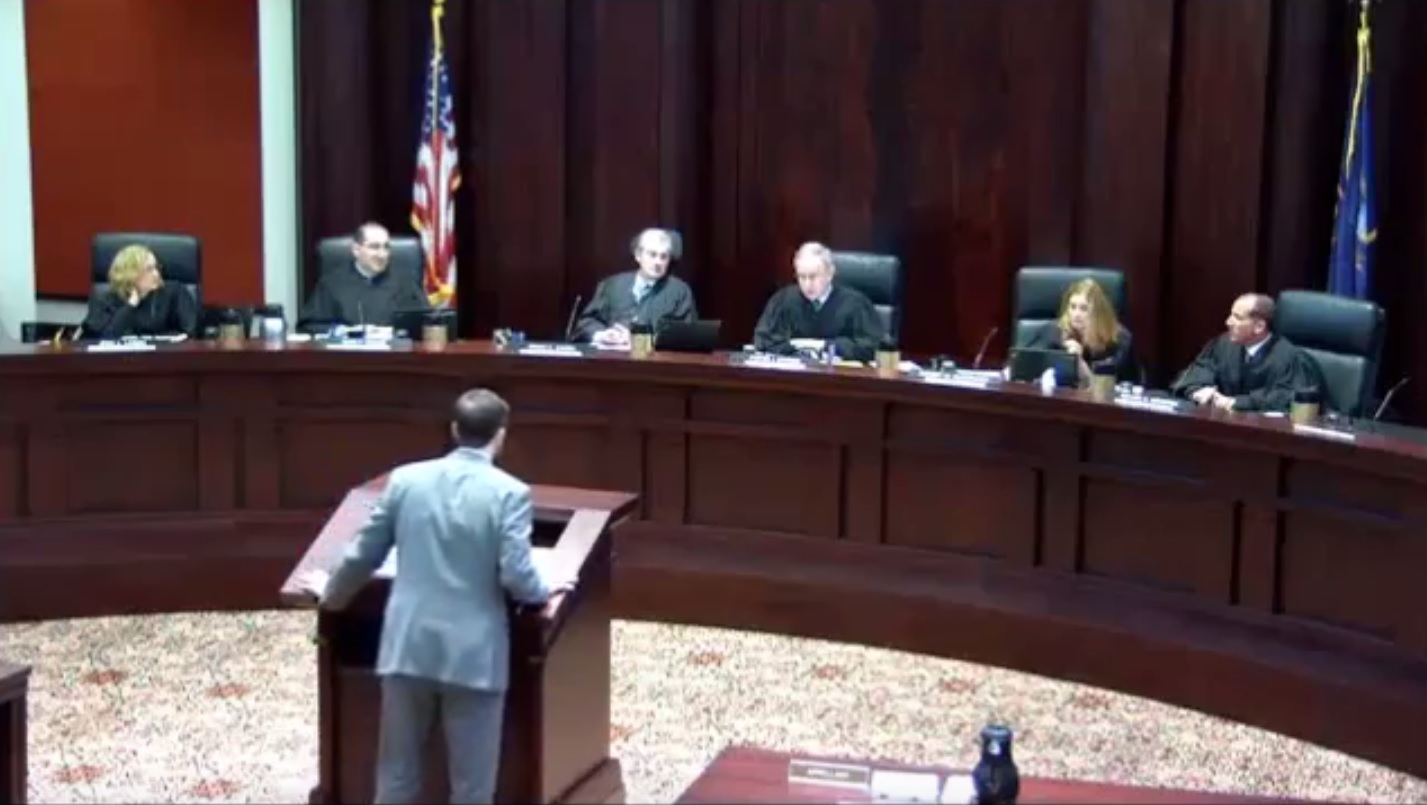Michigan Supreme Court Hears Cases on Criminal and Civil Rights
Can a student can sue a religious school under the Persons with Disabilities Civil Rights Act?

The Michigan Supreme Court convened in Lansing this week.
Whether or not a student can sue a religious school under the Persons with Disabilities Civil Rights Act was one question before the court Thursday.
Bettina Winkler was a student at Notre Dame Marist Academy middle school. She was denied admission to the affiliated high school. Winkler says it’s because she has a learning disability.
Nicholas Roumel is Winkler’s attorney. He said Winkler was the only middle school student that wasn’t accepted to the high school.
“She’s been stigmatized by her disability, stigmatized by her non-admission,” he said. “Sure she can go to a public school but that’s not what she and her family wanted.”
The school argues that civil courts don’t have jurisdiction to review a religious school’s admissions decisions.
Winkler believes, “This case will decide what the appropriate balance is between students’ strong rights under a statute to be free from discrimination and the church’s rights under the constitution to practice their religion without interference.”
The other case involved a defendants’ right to an attorney during a preliminary hearing.
Gary Lewis rejected his attorney during his preliminary hearing and was eventually kicked out of the courtroom himself. He was later convicted at trial.
Dan Korobkin is the deputy legal director for the ACLU of Michigan. He says defendants need an attorney at the preliminary hearing because that is their chance to test the state’s evidence before trial.
“In our country you have a right to a lawyer and we can’t allow convictions to stand when a lawyer has been completely removed from the case,” he said.

